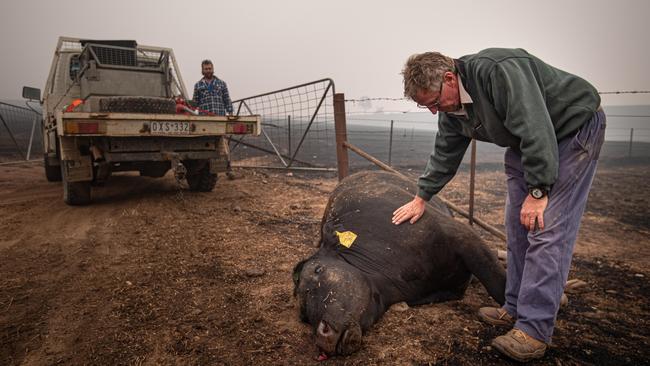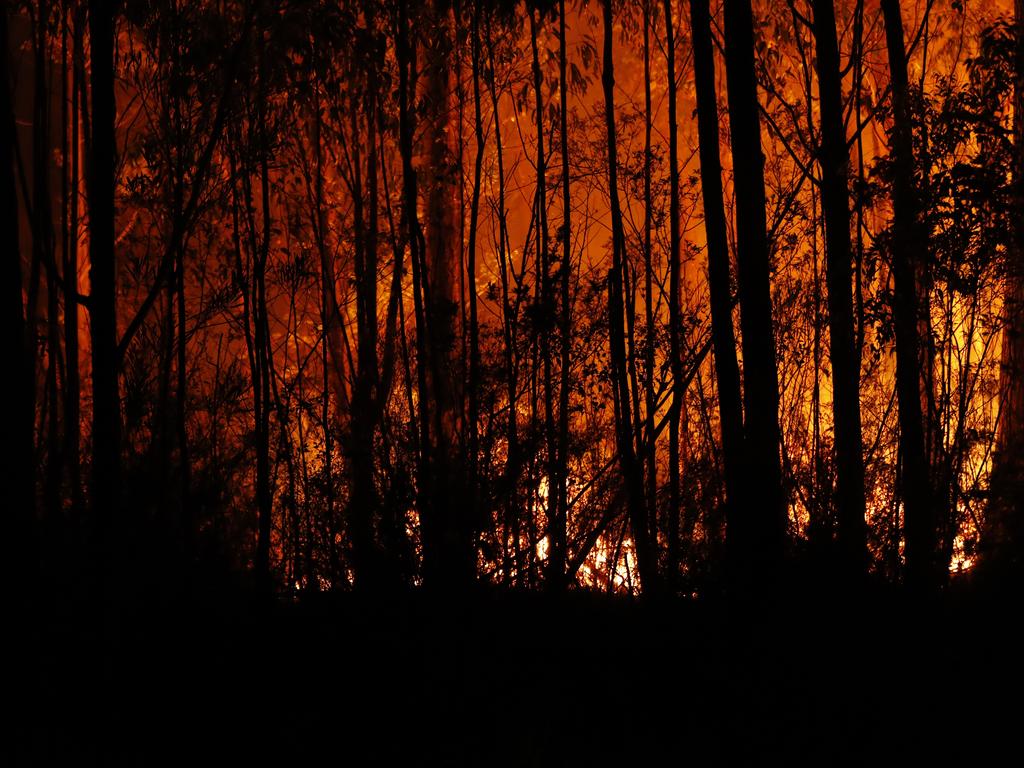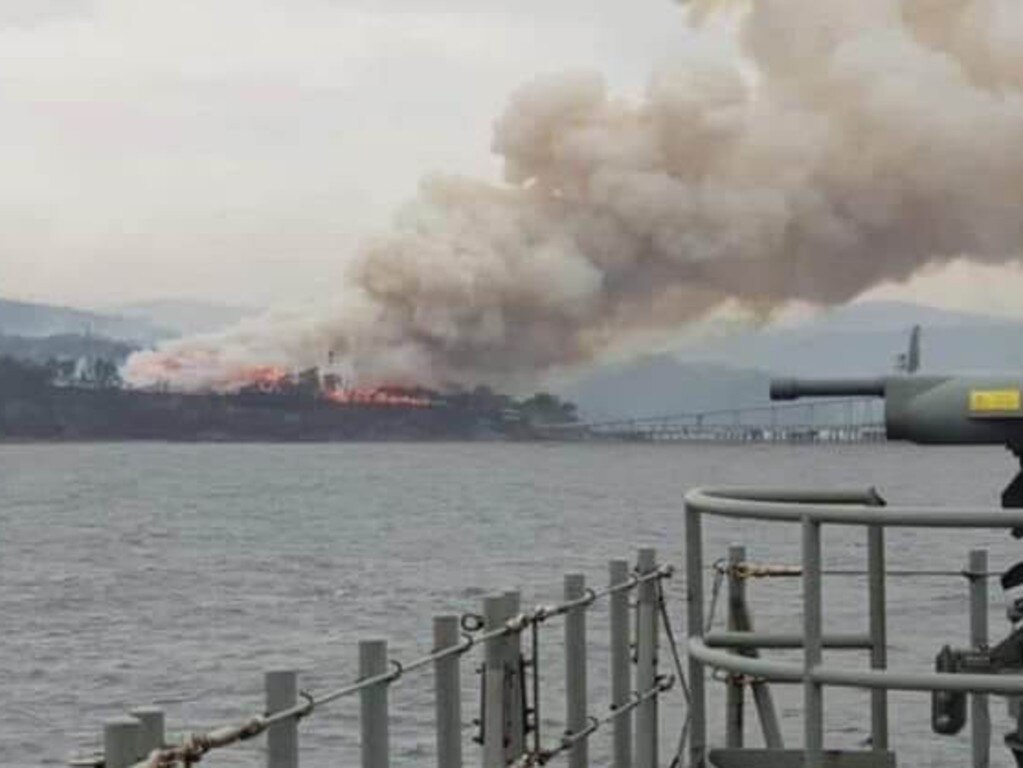Bushfires: Army called in as livestock losses spark fears of disease
The armed forces have been brought in as massive livestock losses spark fears of contamination and disease.

The federal government has urged farmers to bury livestock killed by the bushfires as a matter of urgency to prevent contamination and disease, and confirmed the armed forces would assist.
The announcement came as the NSW Farmers Association said stock losses were rising dramatically as authorities obtained reports of a huge number of deaths in the past fortnight.
The NSW Department of Primary Industries is reporting that 6284 head of livestock have been euthanised or confirmed dead in bushfires this season across NSW, of which 5198 have been lost in the southeast of the state since Christmas.
NSW Farmers president James Jackson said this figure was likely to rise in coming days as assessment teams and farmers gained access to other active fire grounds.
Agriculture Victoria animal health and impact assessment teams have visited 290 properties in the past week, providing an initial assessment of 1150 confirmed livestock losses in the Upper Murray area and 150 in Gippsland across dairy, beef and sheep – with more than 3500 animals still reported as missing across both regions.
In a joint statement Agriculture Minister Bridget McKenzie and Defence Minister Linda Reynolds said it was important stock disposal begin “as quickly as possible to reduce the risk of contamination and disease” and the Australian Defence Force would be deployed “to relieve a burden from the shoulders of farmers already stretched to capacity.”
“The size of the task is still being assessed but we expect the volume of stock losses to vary across fire-affected regions and within regions,” Senator McKenzie said.
“Unfortunately for some farms, they will have lost considerable numbers of sheep and cattle, while others will have fared better.
“The situation is likely to be beyond our local farmers and some local government areas who currently have their resources deployed to battle these devastating fires.
“Our farmers are also our volunteer firefighters – by day they’ve been protecting their homes and farms only to don the uniform and protect their community by night. Their efforts are heroic but they’re not superhuman and they deserve our assistance after the days and weeks they have put in.”
Senator Reynolds said ADF members were well placed to help with the task after their experiences in responding to the North Queensland Floods.
“The loss of livestock is terrible and Defence is working with state authorities to bury the carcasses as quickly as possible,” Senator Reynolds said. “The Australian Defence Force is not here to take jobs away from local contractors. We will only step in when they’re not available at the request of state authorities.”
Mr Jackson said the NSW Farmers dairy committee was reporting that fodder and fuel was starting to make its way to dairy farms in the southern fire zone. “Dairy producers on the south coast have had the most pressing need for immediate support and the DPI and Local Land Services have done a good job getting emergency fodder, generators and fuel into dairy farms in this region,” Mr Jackson said.
“We also need to be mindful that the impact on horticultural operations will be extensive as well. The fires have impacted a wide variety of agricultural enterprises in NSW, from oyster sheds on the south coast to apple orchards in Batlow and Bilpin and honey producers.”
Mr Jackson said NSW Farmers was working with government agencies and rural charities including Rural Aid to move from emergency assistance to recovery support.
“As always, farmers are out there helping their fellow farmers with fodder donations and community organisations are doing all they can to support everyone,” Mr Jackson said.
“But farmers do require immediate and ongoing assistance to keep livestock alive with water and feed supplies.”







To join the conversation, please log in. Don't have an account? Register
Join the conversation, you are commenting as Logout